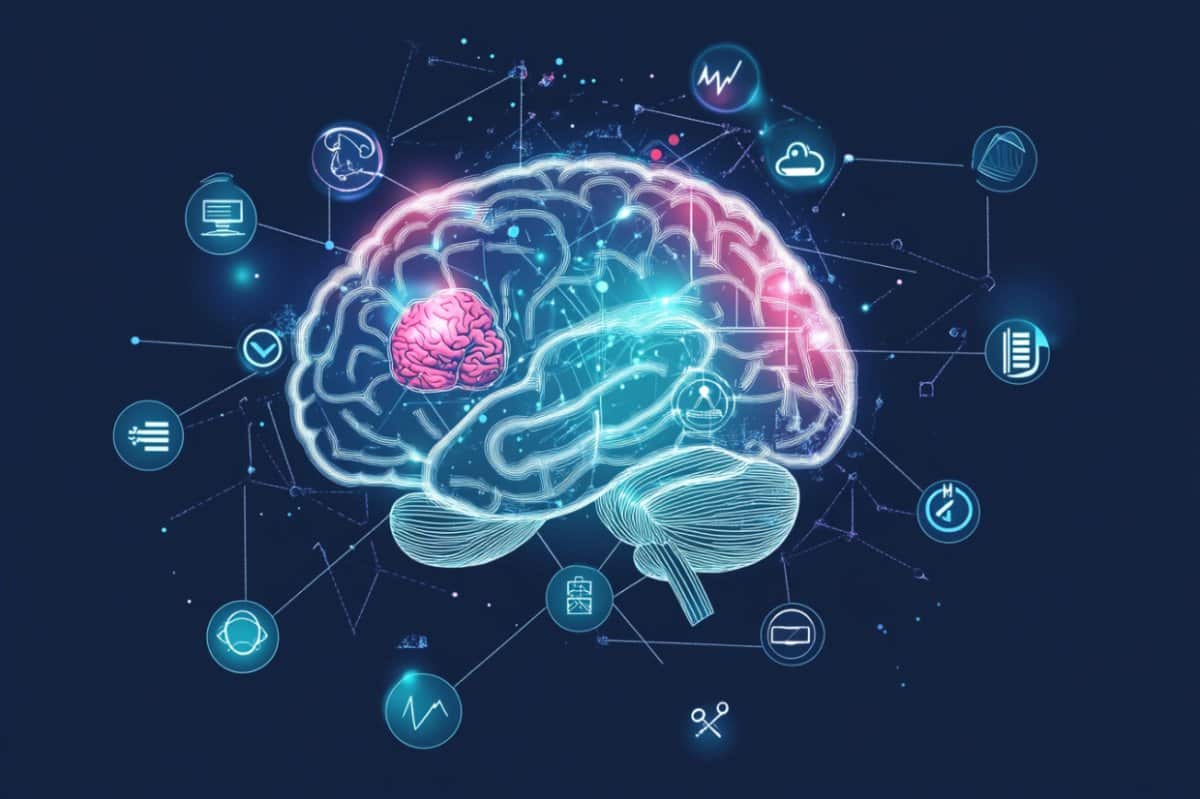A new study used machine learning to pinpoint the lifestyle and health factors most strongly associated with cognitive performance across the lifespan.


AI avatars of dead people are teaching courses and testifying in court. Even with the best of intentions, the emerging practice of AI ‘reanimations’ is an ethical quagmire.
Questions to inspire discussion.
A: Tesla is testing FSD in the Arctic and awaiting regulatory approval for cities like Paris, Amsterdam, and Rome.
🇸🇪 Q: Why was FSD testing denied in Stockholm?
A: Stockholm denied FSD testing due to risks for infrastructure and pressure from ongoing innovation tasks.
🤖 Q: What improvements are expected in Tesla’s Grok AI?
A: Grok 3.5 will be trained on video data from Tesla cars and Optimus robots, enabling it to understand the world and perform tasks like dropping off passengers.

Not only can A.I. now make these assessments with remarkable, humanlike accuracy; it can make millions of them in an instant. A.I.’s superpower is its ability to recognize and interpret patterns: to sift through raw data and, by comparing it across vast data sets, to spot trends, relationships and irregularities.
As humans, we constantly generate patterns: in the sequence of our genes, the beating of our hearts, the repetitive motion of our muscles and joints. Everything about us, from the cellular level to the way our bodies move through space, is a source of grist for A.I. to mine. And so it’s no surprise that, as the power of the technology has grown, some of its most startling new abilities lie in its perception of us: our physical forms, our behavior and even our psyches.


Given the recent explosion of large language models (LLMs) that can make convincingly human-like statements, it makes sense that there’s been a deepened focus on developing the models to be able to explain how they make decisions. But how can we be sure that what they’re saying is the truth?
In a new paper, researchers from Microsoft and MIT’s Computer Science and Artificial Intelligence Laboratory (CSAIL) propose a novel method for measuring LLM explanations with respect to their “faithfulness”—that is, how accurately an explanation represents the reasoning process behind the model’s answer.
As lead author and Ph.D. student Katie Matton explains, faithfulness is no minor concern: if an LLM produces explanations that are plausible but unfaithful, users might develop false confidence in its responses and fail to recognize when recommendations are misaligned with their own values, like avoiding bias in hiring.


From a data platform perspective, teams responsible for maintaining efficient, scalable infrastructure can benefit from M1’s support for structured function calling and its compatibility with automated pipelines. Its open-source nature allows teams to tailor performance to their stack without vendor lock-in.
Security leads may also find value in evaluating M1’s potential for secure, on-premises deployment of a high-capability model that doesn’t rely on transmitting sensitive data to third-party endpoints.
Taken together, MiniMax-M1 presents a flexible option for organizations looking to experiment with or scale up advanced AI capabilities while managing costs, staying within operational limits, and avoiding proprietary constraints.
Nature Communications paper.
Paper link: https://www.nature.com/articles/s41467-024-55157-2
PDF link: https://rdcu.be/d7B8C
This paper proposes a highly dexterous and compliant aerial continuum manipulator (Aerial Elephant Trunk). We have proposed the design, designed the shape estimation method, developed a feedback controller, and proposed a whole-body motion planning module such that the UAV and the continuum manipulator could carry out tasks as a whole.
AET can perform various challenging aerial manipulation tasks, including but not limited to:
1) grasping object of various sizes and shapes;
2) traversing constrained pipelines with various shapes;
3) aerial writing/painting;
4) performing manipulation in various complex environments.
#robot #drone #uav #airplane #robotics #artificialintelligence #technology #learning #deeplearning @UAVfutures @fpvdrones @meninododronefpv @Thedroneracingleague @RobotFutureAI
Although AI-based restoration methods can indeed bring new life to damaged paintings, the end result is typically a digital copy of the original painting. By contrast, a new MIT technique applies reversible repairs to the physical painting itself, in the form of a removable mask.
The process was developed by mechanical engineering graduate student Alex Kachkine, who restores paintings via traditional hand-painting techniques as a hobby.
He realized that many galleries have a number of paintings which never get displayed, because they require restoration that would take too long – and thus be too expensive – to perform by hand. Utilizing his method, however, restoration times could be reduced from years, months or weeks down to a matter of hours.